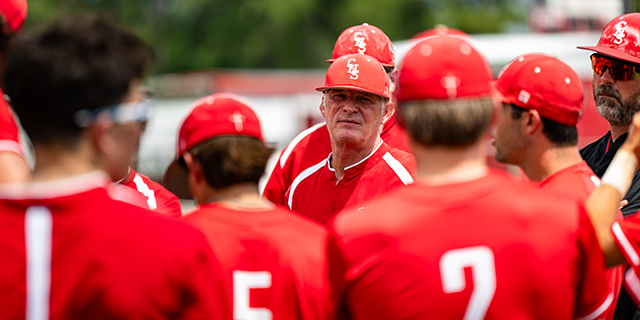Community Health Centers respond to crisis
Published 8:00 am Sunday, March 22, 2020

- Dr. Gary Wiltz, M.D., CEO of Teche Action Clinic, makes a presentation before Gov. John Bel Edwards and former state Rep. Sam Jones of Franklin in 2015.
This week, Iberia Comprehensive and Teche Action Clinic Community Health Centers begin week three of their fight against COVID-19.
Roderick Campbell, the CEO of Iberia Comprehensive, and Dr. Gary Wiltz, the CEO of Teche Action Clinic, have implemented plans to fight against the virus while their facilities continue to serve health care needs.
The centers are Federal Community Health Care Centers, meaning at least 30 percent of their budgets are funded annually by the federal government.
Each clinic treats patients on a sliding fee scale basis, regardless of whether they have insurance, Medicaid, Medicare or no insurance.
Campbell oversees operations at clinics in New Iberia, St. Martinville, Abbeville, Lafayette, Merryville, Many and Leesville. He said part of his plan is to never allow more than 10 people in his clinic’s lobbies at one time.
“We ask our patients to wait in their cars, and we will call them in when it is their turn. If they don’t have cell phones, we will go to their vehicle and get them,” Campbell said.
Before the patient enters any of the center’s buildings, he said, they are screened and triaged.
“I am very proud of our nursing and front desk staff who are on the frontline. They have never been hesitant to approach our patients and do their jobs. I can’t say thank you enough, as there is a risk for them as well. However, they realize their obligation is to serve the community,” Campbell said.
He said other measures the clinics are taking include limiting the amount of people who accompany a patient to one person and keeping delivery people and the mail carriers outside as much as possible.
“The last place you should want to visit is a place where there are sick people. If you come to any of our clinics, you have to have a legitimate reason to be there,” Campbell said.
“The more you are exposed to other people, the more you are at risk.”
Both Campbell and Wiltz said they want to encourage the public to continually wash hands, practice social distancing and stay at home if at all possible, as they say the virus is spread from person to person.
Both clinics are collecting samples from their patients and sending those samples off to be tested to determine whether their patients have tested positive for the virus.
As of now, no results have returned positive.
Iberia and Teche Clinics are also asking similar pre-screening questions, which include asking the patient whether they have travelled to China, Iran, South Korea, Italy or Japan, as well as whether any of their household members have traveled anywhere within the United States, even locally, in the last 14 days.
The pre-screening questions also ask whether the patient is experiencing fever, cough, shortness of breath or sore throat.
Teche Action Clinic is Louisiana’s first Community Health Center. It opened in the summer of 1974 to treat migrant sugar cane workers in Franklin.
The Franklin clinic is the main campus of the organization which includes 14 other sites, six of which are school based clinics.
Teche operates a second clinic in St. Mary Parish, and a school based clinic at B. Edward Boudreaux/West St Mary High School. The 12 other clinics are located in other parishes.
Wiltz said while he is juggling measures between people who believe they may have COVID-19 symptoms and those who have the flu, diabetes and heart issues. This is also colorectal cancer prevention month, he said.
“We’re asking our patients to call ahead before they enter our building. However, if their symptoms are severe, they should go to the emergency room,” he said.
Wiltz is also screening all of his employees and vendors daily to see if they have a temperature below 100 in order to be allowed into the building.
“The public needs to know that there is no immediate test available — it’s taking three to four days to get test results back,” he said.
“If anyone comes to us and the answers to the survey questions are highly probable, we will send them home on orders to self-quarantine, until results are determined.”
He said hand washing should also be at least a minute if not more.
“This is a pandemic that we’re in and we don’t know the full effects because we started testing late. The only way to figure out the penetration of the disease is to keep testing and testing,” Wiltz said.
“Those who are highest risk are people over 60, who have other conditions, like heart disease, a history of cancer, diabetes, high blood pressure, lupus; also those in nursing homes are particularly vulnerable,” he said.
“If we can get to a peak, and the curve starts flattening, and we’re not having new cases, then we’ve reached a plateau and hopefully it will start dropping off.”
Wiltz recommends not going out and congregating, even to funerals and weddings.
“This virus can be passed on from sneezing, as well as touching something and then touching your face,” he said.
“In short, because we did not start testing early, we have to ask folks to stay home as much as possible.”
Also, Wiltz said one of the new amenities for patients in Franklin, is home delivery of their medicine.
“This helps us have less people in our lobby,” he said.





